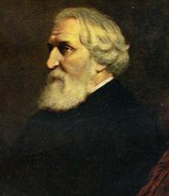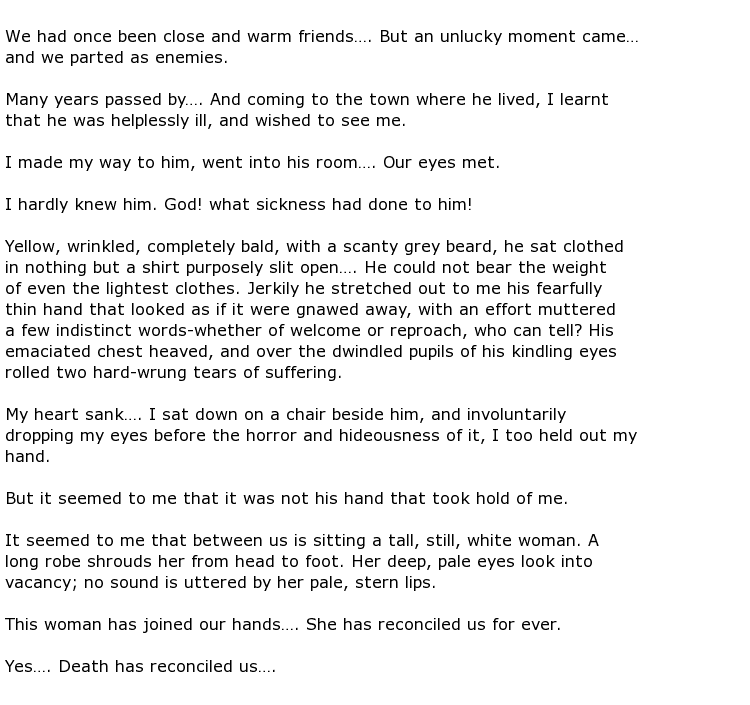 Ivan Turgenev was a 19th century Russian writer and civil servant whose literary output included poetry, plays, short stories and novels. Literary critics have held the general view that his Fathers and Sons ranks amongst the greatest novels of that time whilst an 1852 collection of short stories called A Sportsman’s Sketches was
Ivan Turgenev was a 19th century Russian writer and civil servant whose literary output included poetry, plays, short stories and novels. Literary critics have held the general view that his Fathers and Sons ranks amongst the greatest novels of that time whilst an 1852 collection of short stories called A Sportsman’s Sketches was

He was born Ivan Sergeyevich Turgenev in October 1818 into comfortable family circumstances but his childhood was fraught with difficulties. His mother Varvara was a wealthy heiress who suffered from her Army husband’s constant infidelities and but she was widowed when Ivan was sixteen years old. She was a cruel mother who would beat her children at will. Despite this he had a good, “gentleman’s” education culminating in a year of study at the University of Moscow and then three years reading the Classics, philology and Russian Literature at the University of Saint Petersburg. Further studies in philosophy and history were taken in Berlin and then he took a masters’ degree.
Turgenev had gained an early interest in poetry from the verses read to him as a child by a family servant and he, in turn, was inspired to write his own poetry as he became a young man which was well received by literary critics such as Vissarion Belinsky. Spending time in Germany influenced him greatly and he hoped that his own country could benefit from the Age of Enlightenment which was sweeping across most of western Europe. Russia was still heavily in favour of serfdom and Turgenev, along with many other educated young people, were very much against it. He joined the Ministry of Interior as a civil servant in 1843, serving for two years and probably hoping to change things for the better.
However, Russian life seemed to stifle him and he spent much of his life living in Paris and Baden-Baden. He was close friends with the French author Gustave Flaubert and they shared political views in that neither favoured the extremist right or left wing politics that seemed to permeate most of Europe. Another close French relationship was conducted with an opera singer called Pauline Viardot.
Turgenev’s strong motivation in life was to write and his poetry was mostly produced in a prose-like style. He liked to introduce realism into his work, ignoring the deeply religious themes of many of his contemporaries. A good example was his poem The Last Meeting which is a touching tale of a man at the bedside of a former close friend who was now dying. Between them appears the “angel” who is seemingly there to escort the friend to the next world. While not dwelling on the religious view of death the piece is certainly about reconciliation and forgiveness. Here is the poem:

Turgenev will be remembered mostly for his novels and short stories and one of these was highly influential in making people think about the practice of serfdom in Russia. It was a series of short stories called A Sportsman’s Sketches and contained his acute observations of rural and peasant life, showing the hardships that many ordinary people suffered throughout their lives. Although he and Leo Tolstoy were at odds on many things, especially their chosen subject matter in literature, this was a subject that they agreed on. Turgenev made a plaintive appeal to Tolstoy on his death bed, saying:

Ivan Turgenev died on the 3rd September 1883 of a spinal tumour at the age of 64. Although he was near Paris at the time his remains were taken back to Russia and interred in a St Petersburg cemetery.

